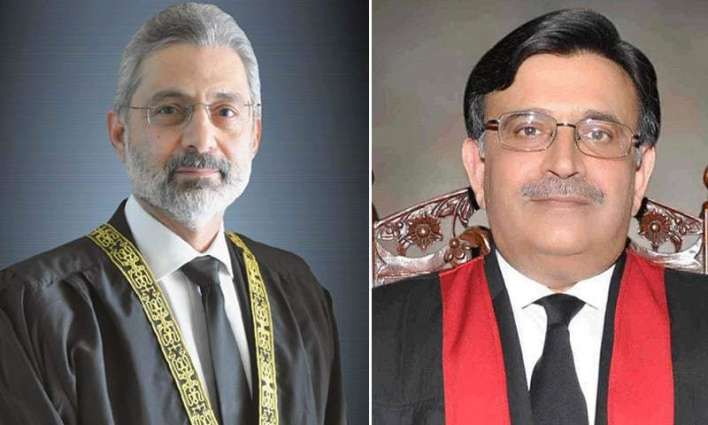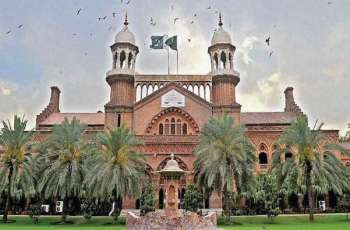The circular noted that the assumption of judicial power in this manner violated the rule laid down by a five-member judgment.
ISLAMABAD: (UrduPoint/Pakistan Point News-March 31st, 2023) The Supreme Court issued a circular disregarding Justice Qazi Faez Isa's judgment to delay suo motu cases until amendments were made to the Supreme Court Rules 1980.
Chief Justice of Pakistan, Umar Ata Bandial, said that the observations made in the judgment were beyond the matter before the court and invoked its suo motu jurisdiction.
The circular was issued hours before a four-member bench was scheduled to hear the Punjab and Khyber Pakhtunkhwa election delay case. The circular noted that the assumption of judicial power in this manner violated the rule laid down by a five-member judgment.
According to the circular, such power is to be invoked by the Chief Justice on the recommendation of an Honourable Judge or a learned Bench of the Court, based on criteria laid down in Article 184(3) of the Constitution. The circular concluded that any observation made in the judgment, including the fixation or otherwise of cases, should be disregarded, and a Registrar should issue a circular stating the legal position for all concerned.
On Wednesday, a special bench of the Supreme Court, led by Justice Qazi Faez Isa, with Justices Amin-ud-Din Khan and Shahid Waheed, ordered the suspension of all suo motu cases under Article 184(3) of the Constitution until amendments are made to the Supreme Court Rules governing the chief justice's discretionary powers. This decision was made in response to the suo motu case examining the award of an additional 20 marks to Hafiz-e-Quran candidates applying for enrollment into an MBBS/BDS degree.
The Chief Justice of Pakistan (CJP), Bandial, had formed the three-member special bench to hear the case, but Justice Isa objected to the constitution of the bench. Justice Waheed, who also dissented against the order, raised objections and noted that the points raised and discussed in the order were not subject to the case.
The order, written by Justice Isa, pointed out that the Supreme Court Rules, 1980 (the Rules) do not permit or envisage special benches. However, a Special Bench comprising three Judges was constituted to hear this case.
The majority order emphasized that the Supreme Court consists of the CJP and all judges, and that the Constitution does not grant the Chief Justice unilateral and arbitrary power to decide certain matters. The order stated that the Chief Justice cannot substitute his personal wisdom with that of the Constitution and that collective determination by the Chief Justice and the judges of the Supreme Court cannot be assumed by an individual, even the Chief Justice.




